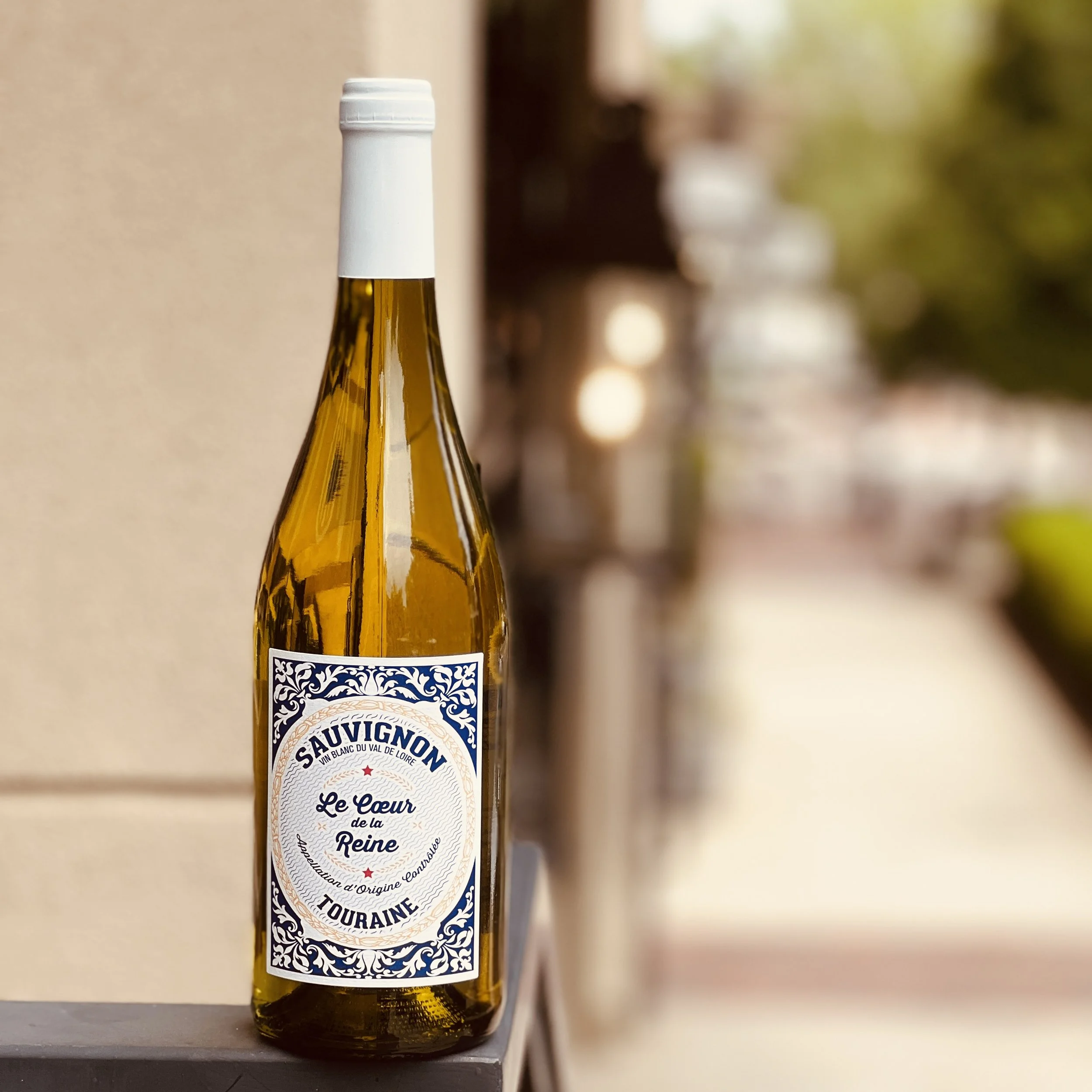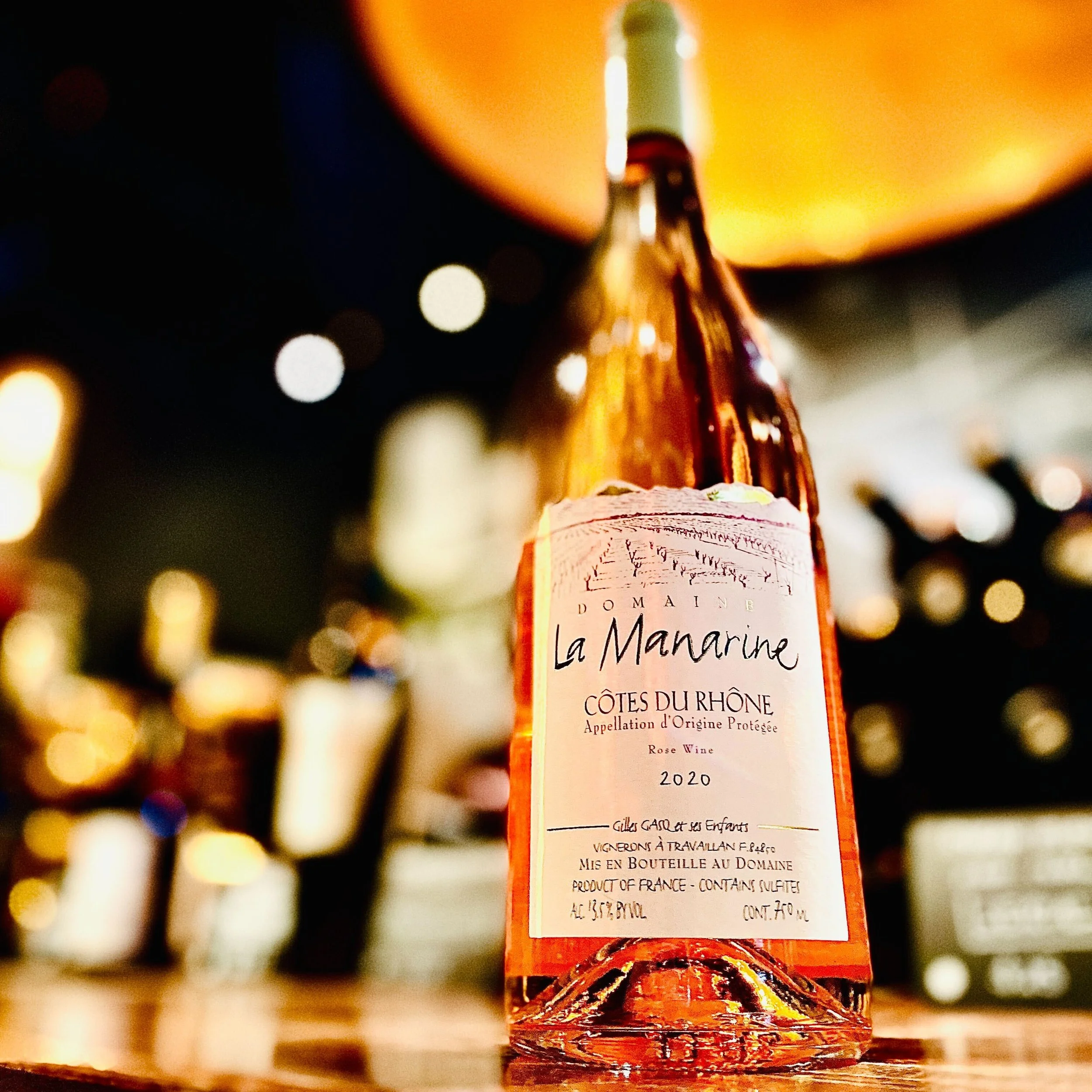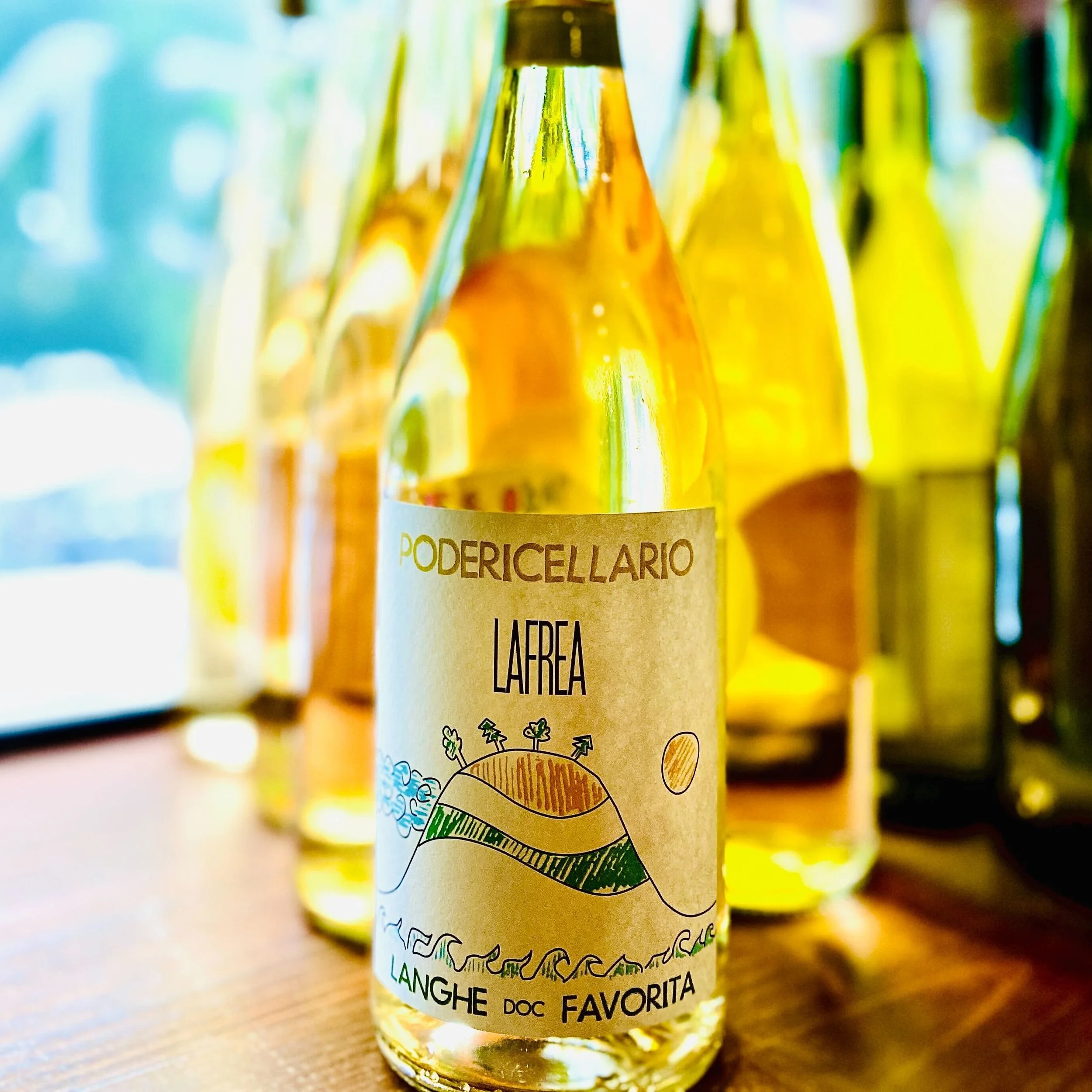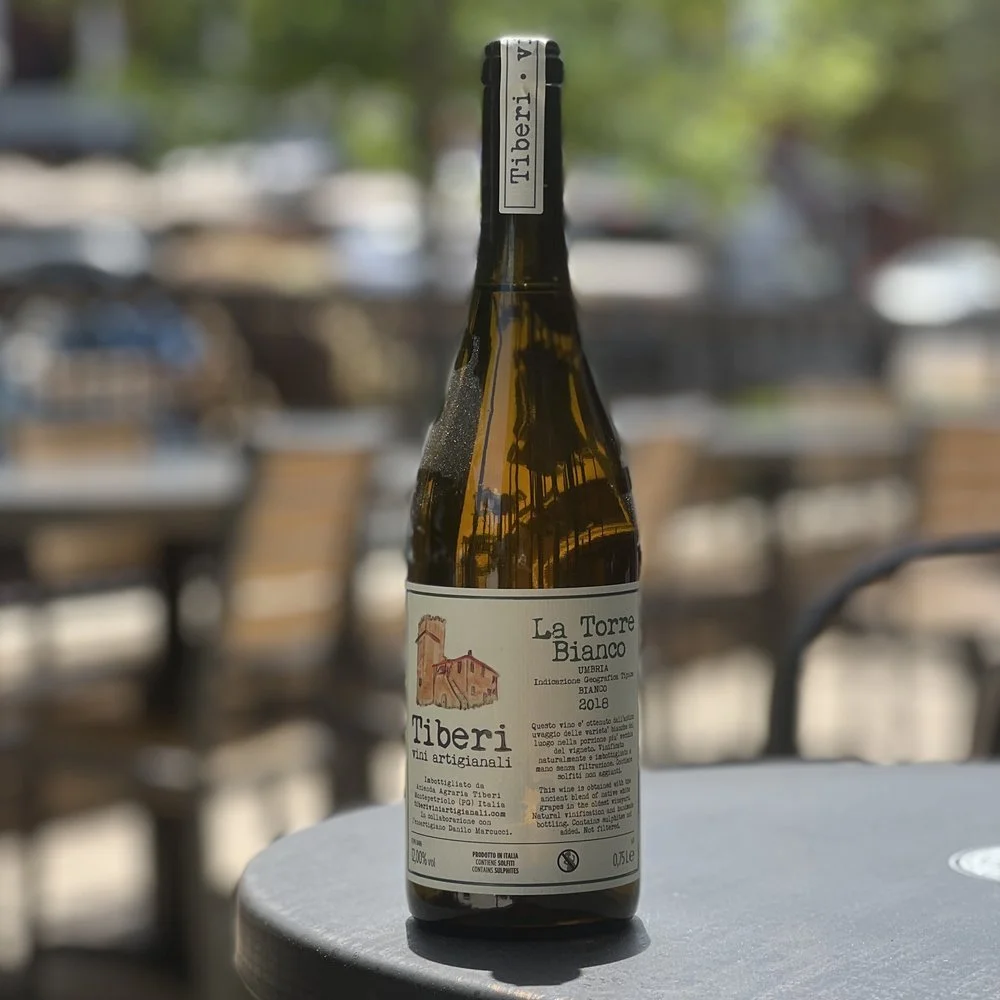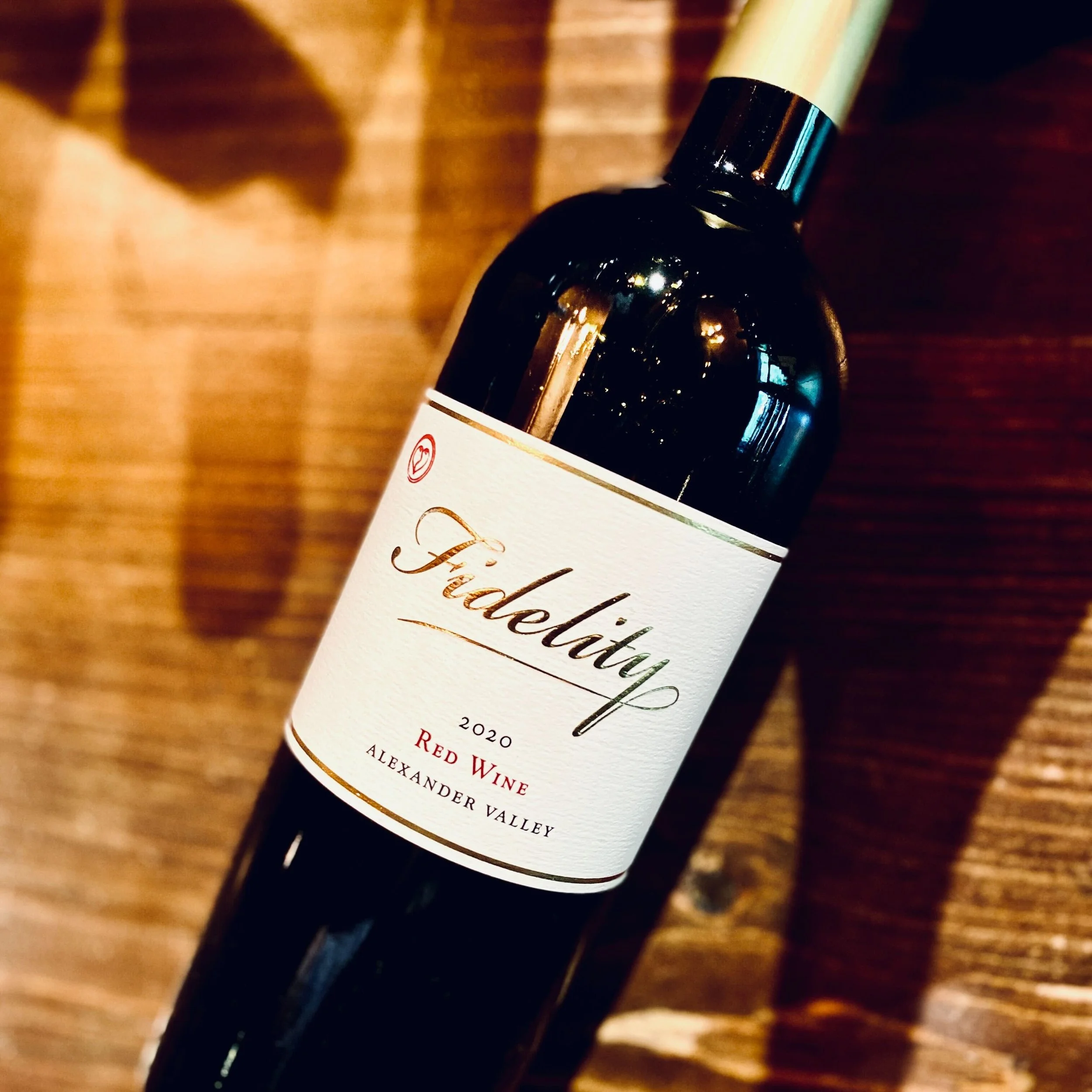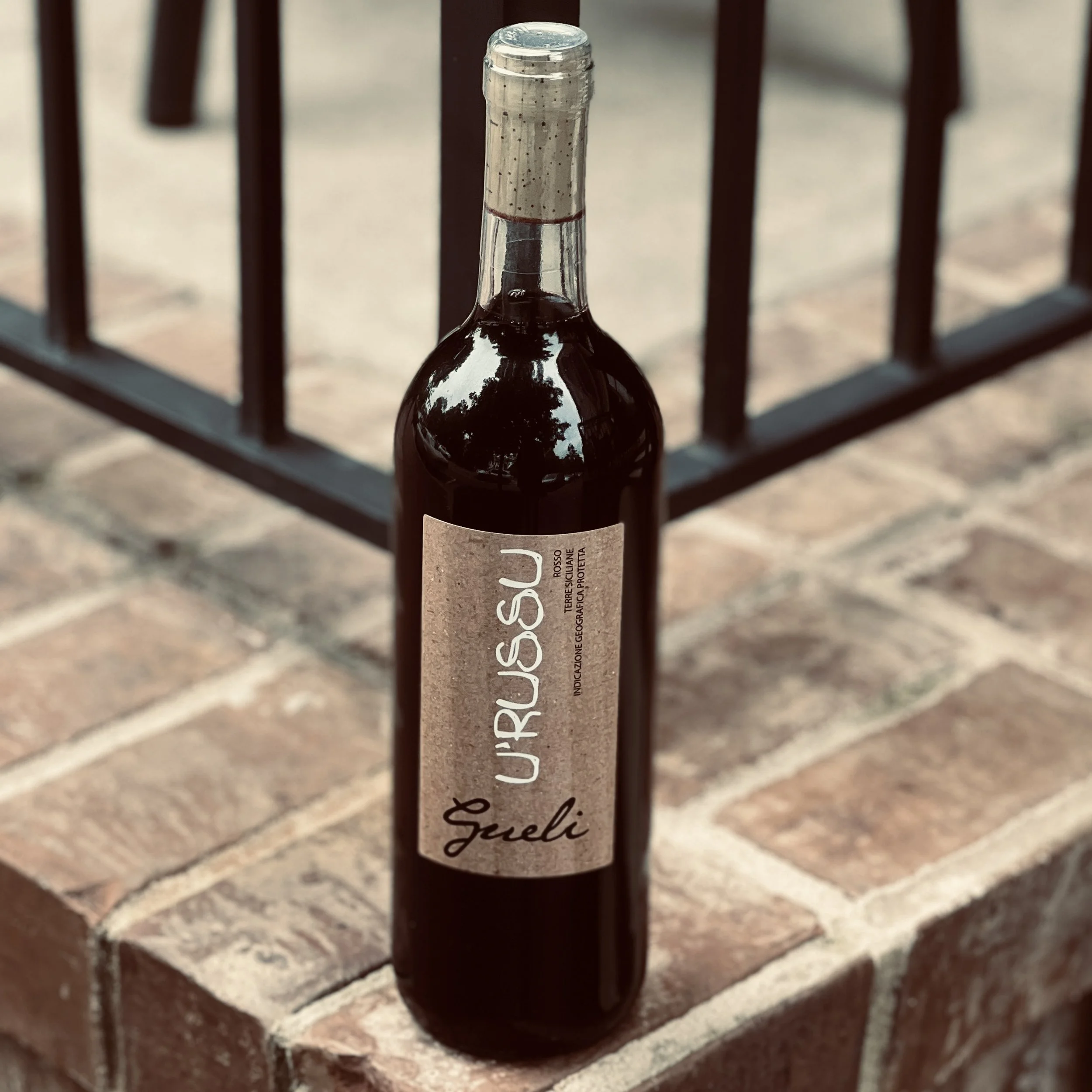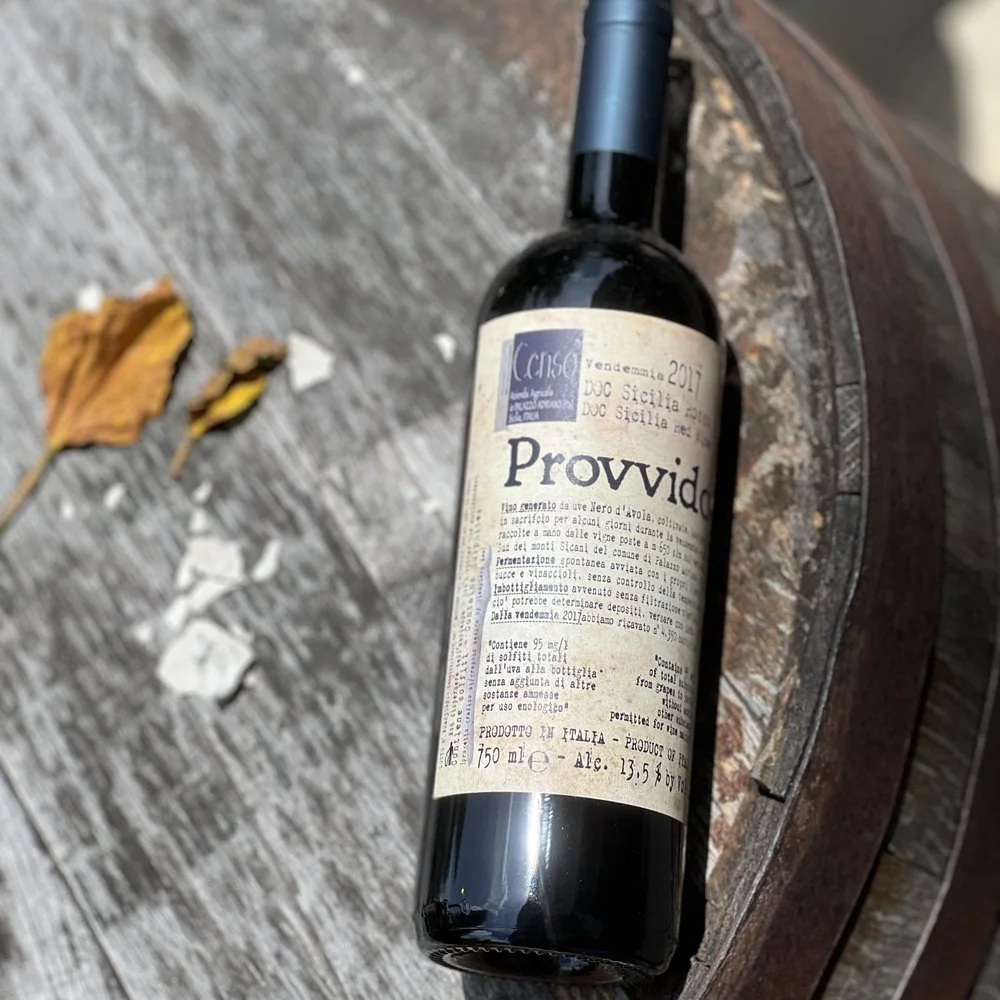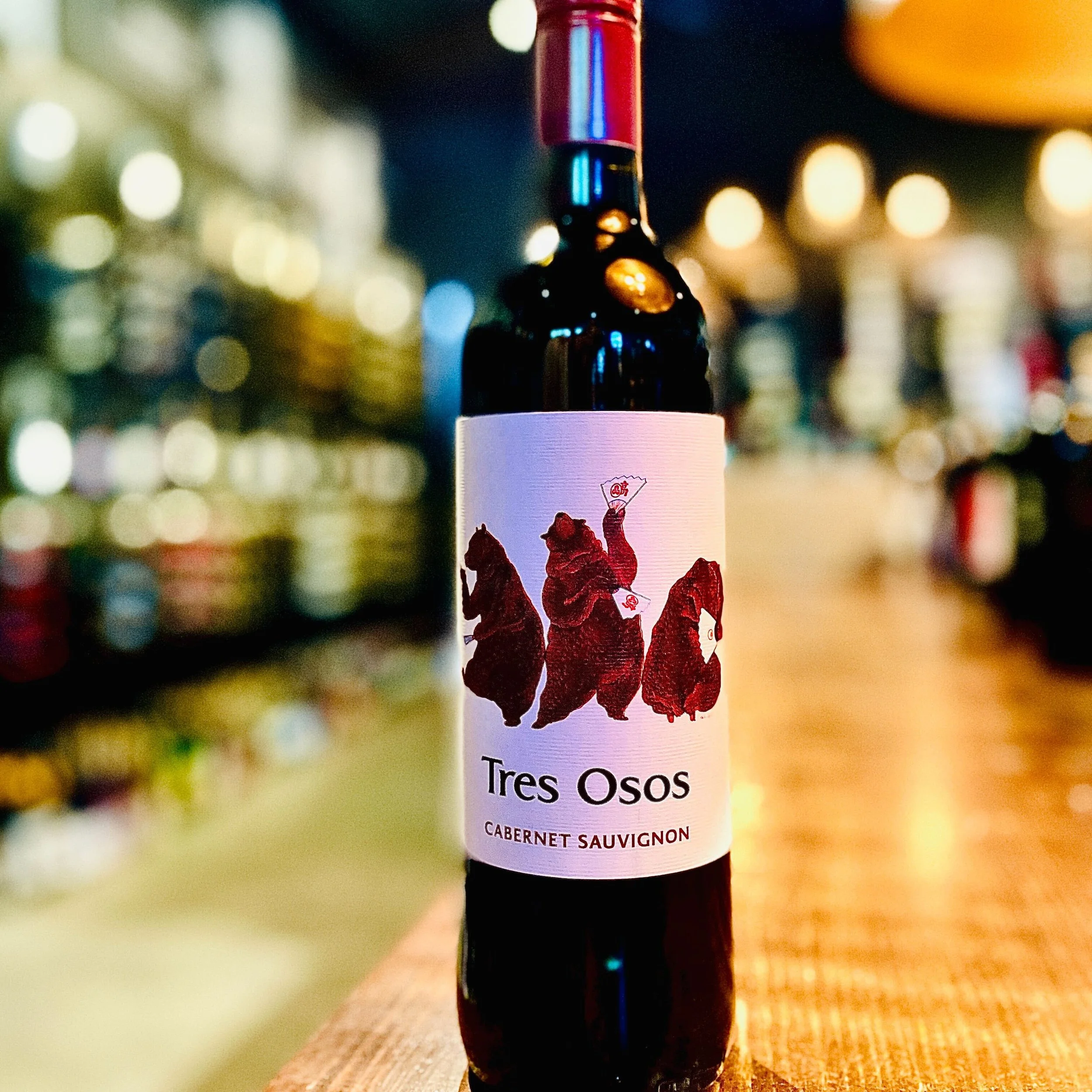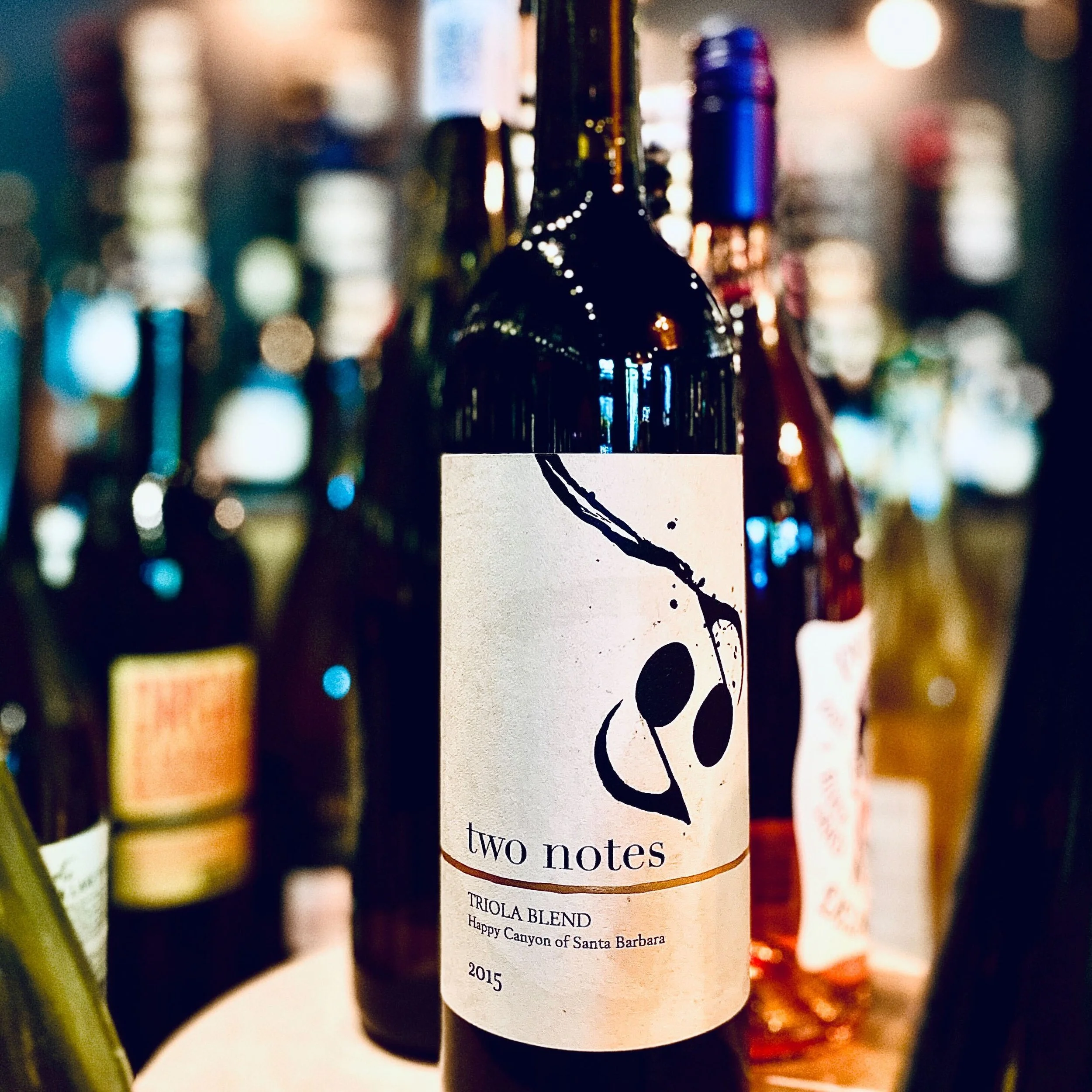UNDERGROUND WINE SOCIETY: May
SCROLL BELOW TO FIND INFORMATION ON YOUR WINES!
The Explorer
$49/month
White/Rosé
COEUR DE LA REINE
Grapes: Sauvignon Blanc
Region: Loire, France
Wine Notes: These vines average 30 years in age and are meticulously tended by the family. Short-cane pruning, selective ploughing, spring de-budding, deleafing, grass cover throughout the vineyard and green harvest practices all lend to limited yields and best quality fruit at harvest. Skin maceration for 60% of the cuvée for 6 hours, gentle pneumatic pressing, and a cool maceration (5°C/41°F) for 7 days. Fermentation at 17°C/63°F for 3-4 weeks followed by elevage in tank on the lees.
Colectivo Mutante PX#1
Grapes: 100% Pedro Ximenez
Region: Swartland, South Africa
Wine Notes: Colectivo Mutante is a small project formed by Diego Edwards and Cedric Nicolle in 2016. They work with a grower from the Limari valley that farms and sells Pedro Ximenez grapes for Pisco production. Diego and Cedric thought that a particular 1 hectare parcel had potential for making high quality wine because of it's calcareous soil and proximity to the coast, so they decided to try their hand at making dry, still PX. Some of Chile’s most highly regarded Pedro Ximenez comes from the north where the arid desert is situated next to the Pacific Ocean. They currently make about 500 cases a year, and this small project is primarily motivated by passion for and enjoyment in life. Diego owns and operates a small wine import and distribution company based in Santiago and they represent some of our favorite wines from Europe. Diego is also an avid outdoorsman and snowboarder. Delicious by itself or with anything slightly spicy!!
Domaine la Manarine
Grapes: Grenache, young vines Mourvedre, and Syrah.
Region: Cotes du Rhone, France
Wine Notes: The Rosé from Manarine carries a light tint and is vinified completely dry. Like the white wine, it is fermented and aged in cement vats and is bottled in the early spring following harvest. We purchase approximately 6000 bottles per vintage. Organic.
Folk Machine
Rosé
Grapes: Gamay Noir
Region: Arroyo Seco, California
Wine Notes: With yields still coming in lower than hoped for in 2020, we once again only made rosé for the. grapes were taken directly to press with just a minimal amount of skin contact time during the trucking from Greenfield to Santa Rosa. Fermentation was uninoculated in stainless steel with temperature control to keep the fermenting juice cool and the fermentation slow, preserving aromatics and flavors.
Continuing our mission and pledge to cut down the carbon footprint of our wines and green our package, this year, we have broke with convention and bottled our rosé in an Antique Green lightweight bottle instead of the flint bottle that the market has grown accustomed to. Green bottles contain a much higher percentage of recycled material and their production has a lower carbon footprint.
Isaac Fernández Selección
Biutiful Cava
Grapes: 80% Macabeo from 55 year old vines and 20% Chardonnay from 20 year old vines
Region: Cava D.O., Spain
Wine Notes: Traditional Farming Methods, Hand and machine harvested fruit. Individual varieties are fermented separately in temperature controlled, stainless steel tanks. Aged for a minimum of 15 months and up to 20+ months on the lees prior to disgorging, no dosage (bone dry)
Poderi Cellario “Lafrea”
Grapes: Favorita (Vermentino)
Region: Langhe, Italy
Wine Notes: Hand-harvested into small bins. De-stemmed, pneumatic direct press. Natural fermentation in stainless steel. Aged in stainless steel tanks on lees from winter through spring. Bottled with minimal sulphur (~10ppm) and without filtering or fining.
Fausto and Cinzia Cellario are 3rd generation winemakers in the village of Carru` on the western outskirts of the Langhe. The family believes in only working with local, indigenous Piemontese grape varieties and fiercely defends local winemaking traditions both in the vineyard work and the cellar practices. Vineyard work is organic (soon to be certified) and all the fermentation take place with indigenous yeasts. Sulfur is only added in tiny quantities at bottling if necessary (a practice not common with a winery in this mid-size range).
Statera Imber
Grapes: Chardonnay
Region: Various, Oregon
Wine Notes: Imber is our only blended still chardonnay. In 2020, it's a blend of 4 vineyards: Stafford Vineyard in the Willamette Valley, Tuckaway Vineyard in Elkton, Johan Vineyard in the Van Duzer Corridor, and Royer Vineyard in the Eola-Amity Hills. Fermented and aged in neutral french oak for 16 months, this is a layered, saline chardonnay. We work with farmers who are true stewards of the land, who see the vineyard as part of an ecosystem, and do their best to grow grapes in a way that respects and celebrates diversity. We genuinely believe that these farmers get most of the credit for the quality of our wine.
Thevenet & Fils Blanc de Blancs
Grapes: Chardonnay
Region: Burgundy, France
Wine Notes: A delightful sparkling wine built exclusively from Chardonnay (younger vines of 20 years of age) harvested from parcels in the village of Serrieres on the border with Pierreclos. The vineyards are west facing and are planted to sandy soils. Only 6000 bottles are produced annually, a good portion of which come to the USA. Depending on vintage conditions, the malo-lactic fermentation is sometimes blocked in order to maintain the proper high level of acidity. The dosage is minimal so as to produce a bone-dry, brightly effervescent cuvée.
Tiberi
La Torre Bianco
Grapes: Blend of Grechetto, Trebbiano, Malvasia and San Colombana.
Region: Umbria, Italy
Wine Notes: Old vine selection. De-stemmed, 2 days skin contact. Basket pressed. Natural ferment in open top vats w/o temperature control, yeast or sulfur. Aged in combination of stainless steel and resin tanks.
Though the Tiberi family has been making wine for generations, it was only in 2015 that Federico and Beatrice took the first major steps to bring the family's wines into the modern era. Together with guidance from grandfather Cesare and family friend and neighbor, Danilo Marcucci, 2015 was a breakthrough vintage. This was the first time that the Tiberi's wines were vinified without additives whatsoever as well as bottled and sold beyond the cellar door to village locals. This was the first step in progressing the family farm into a modern pioneer of Umbrian natural wine and a way forward to create a sustainable working farm with a reach beyond the local village.
Reds
Brovia Dolcetto d’Alba Vignavillej
Grapes: Dolcetto
Region: Langhe, Italy
Wine Notes: Harvested from classic clay-limestone soils from plots in Castiglione Falletto and Serralunga d’Alba, some planted in 1981 and the other portion in 1993. The grapes are crushed and fermented in stainless steel at 29 degrees Celsius for a period of a week to 10 days; then aged in stainless steel for seven to nine months before the bottling (unfiltered). Approximately 10,000 bottles are produced annually, about one-quarter of which is dedicated to the US market. From old vines in on prime Langhe slopes, Brovia's Dolcetto brings great complexity and intensity to the glass. While enjoyable in its youth, and a perfect wine to drink while waiting for the domaine's Baroli to come into harmony in the cellar, this cuvée can also age gracefully for up to a decade.
Chateau Soucherie
Grapes: Cabernet Franc & Grolleaux
Region: Alexander Valley, California
Wine Notes: The vines are planted to gravel and schist soils. The elevage is in cuve on the fine lies for approximately eight months. We purchase on the order of 5000 bottles of this wine annually. Originally owned by Pierre-Yves Tijou, now owner of the neighboring Château de l’Éperonnière, Soucherie has been owned by Roger Beguinot since 2000. Beguinot worked alongside Thibaud Boudignon for nearly a decade, who pushed the domaine to embrace or- ganic viticulture and pursue “agriculture integrée.” Beguinot is now assisted by a new Maître de Chai, Vianney de Taste. The RWM team could not be more thrilled with the output from M. de Taste that it has encountered so far and looks forward to the heights Soucherie will reach in the future. Every year since I was introduced to these complex and savory wines, born from the marriage of the Layon and the noble Chenin Blanc, we have been priveliged to purchase its dry and sweet versions of wines of the Coteaux du Layon and of Savennieres, along with the simple and satisfying reds and rosés that render the fruits of the local Cabernet Franc and Grolleau.
Domaine Dubost Beaujolais-Lantignié Rouge
Grapes: Gamay
Region: Beajolais, France
Wine Notes: Organic, & Biodynamic, Domaine Dubost is a 4th generation domaine that has been in the hands of Jean-Paul Dubost since the mid-1990s. They farm about 21 hectares now, nine from the village appellation and the rest split between Brouilly, Moulin à Vent, Morgon, Fleurie, and a little Regnié. Jean-Paul has been transitioning his vineyards to biodynamics since 2005 and ferments all of the wines with natural yeasts. The crus are made without sulfur or other additions. Jean-Paul is currently training his two young sons, Jeoffrey and Corentin, about natural wine and hopes that one day they will take over the family estate.
Esencia de Monte Tinto
Grapes: Monastrell (70%) & Tempranillo (30%)
Region: Valencia, Spain
Food Pairing: All kinds of meats, barbecue roasts, rice, pasta.
Wine Notes:Fermentation and malolactic fermentation in concrete tanks with their own indigenous yeasts. Part of the wine ages in French oak barrels for eight months and the rest of the wine is aged for eight months in the concrete tanks themselves. Subsequent smooth filtering before bottling.
Goldschmidt “Fidelity”
Grapes: Merlot, Petit Verdot, Cabernet Sauvignon
Region: Alexander Valley, California
Wine Notes: “It felt more like a normal year in Sonoma County versus 2016. Bud break came a bit early despite the cool spring. A very mild summer followed and ripening was slow but steady. However, we did receive two heat spikes in the vintage which pushed things along nicely. The hang time for the fruit was nearly ideal. Perfect for flavor and tannin development with sugars staying in check. The clusters filled out nicely with the berries growing to normal size. Harvest was a little later than the last few vintages and a little compressed. Great vintage overall once again.”
Granito del Caldalso COOPERATIVA DE CADALSO
Grapes: Garnacha
Region: Vinos de Madrid, Spain
Wine Notes: 2015 was the inaugural vintage of this new partnership between the Cooperativa and Comando G and as soon as Eric Solomon tasted it, we partnered with the Cooperativa, Dani and Fernando to create Granito del Cadalso. It is made from Garnacha sourced from the granitic and sandy soils of the village. The vines range in age from 20 to well over 70 years old. Harvested by hand, Granito del Cadalso is fermented and aged in concrete with a 15-20 day maceration with regular remontage.
Gueli U'Russu
Grapes: Nero d’Avola
Region: Sicily, Italy
Wine Notes:
In this phase, we have decided to return to the traditional procedures used in the winerys of the past, locally called "Palmento".
Harvesting
The actual wine-making takes place in small concrete tanks. The advantage of being small is that there is no need for artificial refrigeration, the contents cool down naturally.
Fermentation
A very small amount of sulphur dioxide is used to prepare the initial yeast, made up of a selection of native yeasts which are then added to the bulk triggering off the fermentation. Two starters are prepared one for each vineyard taken from the different regions, thus allowing each bulk to ferment with its own yeast. At the end of the fermentation, during which time it is stirred manually several times a day. The tanks are covered with plexiglass lids and the remaining air space in the tank is saturated with inert gas in order to allow a maceration for at least 40 days.
Racking - Aging
At the end of this period, the bulk of the grapes and juices is pressed in a hand-press and put into oak barrels and stored for a long period during which it acquires stability and equilibrium. The wine is then bottled without being filtred or adding sulphur dioxide.
Il Censo Provvido
Grapes: Nero d’Avola
Region: Sicily, Italy
Wine Notes: grown at 650 meters altitude and aged in the non-interventionist style of Gaetano’s mentor, Giampiero Bea: no added yeasts, no temperature stabilization, no fining or filtering, and a minimum of added sulfur dioxide (total sulfur is 65 mg/L). 2016 marks the first vintage for this, RWM’s first ever Nero d’Avola, and it is a delightful addition to Il Censo’s lineup: deep in color, exuberant in personality, and an exceptional value as well. Fruits lean toward black cherry and blackberry, with notes of licorice and dark chocolate. It’s a proud sun-drenched southerner, ample and gregarious, but with tons of high-toned spice to balance, as well as a well-mannered flirtation with volatility that remains firmly on the correct side of the fence.
Ricominciare
Grapes: Malbec & Cabernet Franc
Region: Mendoza, Argentina
Wine Notes: In 1902, Nicolás Catena arrived in Argentina from Italy. In Finca La Libertad in Mendoza, he established an ancient tradition in new lands. Jorge, his grandson, inherited this legacy and passion for winemaking. Today, Viviana, Jorge’s daughter and her family continue the traditional winemaking methods passed down by his grandfather. Ricominciare uses only grapes from the Finca San Vicente Estate, in La Consulta in Uco Valley. This vineyard has been in the family for more than 50 years. Deep sandy soils, the high altitude of the vineyards and the water coming from the thaw of the Andes Mountains combine to create wines of unique personality. The harvest is done 100% by hand. Only native yeasts are used and fermentation is done in small concrete tanks plot by plot. The wines are bottled with no fining and only a very light filtration. The aim is always elegance.
Stolpman Vineyards Para Maria
Grapes: Syrah & Petit Verdot
Region: Los Olivos, California
Wine Notes: AT THE WINERY
We've settled into a rhythm with Para Maria. 40% earlier picked whole-cluster, whole-grape "carbonic" fermented syrah for brightness and freshness. 40% de-stemmed crushed traditional syrah for a dense core. 20% de-stemmed Petit Verdot for a depth and cushion
Maria Solorzano appears shy around visitors and she is always quick to smile. For anyone that sees her in action, it is clear that she leads by the example of her hard-work. Most comfortable in her routine of perpetual motion out on the vineyard - Maria runs perhaps the hardest working, most passionate vineyard crew in the world. On a daily basis, she teaches La Cuadrilla new techniques to execute a constant barrage of experiments - often adapting on the fly - figuring out practical ways of farming ridiculously high-density vineyards by hand or training canopies for ideal shading and wind-flow.
Tres Osos
Grapes: Cabernet Sauvignon
Region: Valencia, Spain
Food Pairing: Red meat, mushroom dishes and pizza.
Wine Notes: Tres Osos means “Three Bears.” This estate is 2500 feet above sea-level in a beautiful natural countryside. The vines are planted in rocky soils rich in broken granite. Green pruning takes place in spring, normally in the dry plots with old stocks. It involves bud snipping and the removal of unnecessary small vine shoots. Next comes a light clarification or extraction of leaves, which must be carried out with utmost care to avoid grape skin burning. In order to remove excess load on the vines, clusters with uneven bulking are cut during the second half of July. The harvest is done manually using 40 lbs boxes. Following the on-field selection, the grapes are sent to the selection table, de-stemmed and crushed and later transferred to stainless steel vats. Only native yeasts are used and maceration lasts 20 days at a controlled temperature. ¼ of wine is aged in new barrels, ¼ in first use barrels, another ¼ in second use barrels, and the last ¼ is unoaked. 4 months in French and American oak casks.
Two Notes “Triola”
Grapes: Cabernet Sav, Merlot, Cabernet Franc
Region: Piedmonte, Italy
Wine Notes: 18 months neutral French oak; Hand harvested, feral yeasts, Practicing Sustainable (certified in 2018)
About the winemaker: Ted Nash and Kristen Lee Sergeant met as musicians, and also bonded through a mutual passion for wine. Combining Kristen’s experience in the wine world with Ted’s longtime dream to make a wine himself, they conceived Two Notes
The Connoisseur
$98/month
Envínate Palo Blanco
Grapes: Listan Blanco
Region: Canary Islands, Span
Wine Notes: this cuvee is sourced from a 1.5ha vineyard of centenarian cordon trenzado (braided vines) Listan Blanco at 600m elevation, and is named for the area where it’s planted. The grapes are hand-harvested, pressed full cluster into large concrete tank off the skins and fermented without malolactic occurring, then raised in two Friulian 2500L oval foudres for 10 months. Bottling is without fining or filtration.
Envínate (translates as "wine yourself") is the brainchild of 4 friends, winemakers Roberto Santana, Alfonso Torrente, Laura Ramos, and José Martínez. This gang of 4 formed back in 2005 while studying enology at the University of Miguel Hernandez in Alicante. Upon graduation, they formed a winemaking consultancy, which evolved into Envínate, a project that focuses on exploring distinctive parcels mainly in the Atlantic-inflected regions of Ribeira Sacra and the Canary Islands. Their collective aim is to make profoundly pure and authentic wines that express the terruño of each parcel in a clear and concise manner. To this end, no chemicals are used in any of the Envínate vineyards, all parcels are picked by hand, the grapes are foot-trodden, and the wines are fermented exclusively with wild yeasts, with a varying proportion of whole grape clusters included. For aging, the wines are raised in old barrels and concrete, and sulfur is only added at bottling, if needed. The results are some of the most exciting and honest wines being produced in Spain today.
Donkey & Goat Lily’s Pet Nat
Grapes: Chardonnay
Region: Anderson Valley, California
Food Pairing: Pair with eggs, caviar, brunch, fried chicken, or a sunlit garden!
Wine Notes: Pet Nat, short for pétillant naturel, can be made from any grape variety (this one is Chardonnay) and is a simpler and ancient way to make sparkling wine. In its purest form, as ours is, the ingredients are limited to grapes (with no Sulphur added). After spontaneous fermentation begins, but before it is complete, the wine is bottled and fermentation continues, creating those delicious bubbles. Jared made our first Lily's in 2011 and ten years later it remains our go-to wine for brunch, lunch, picnics and beach days. This wine will please many palates and is made for al fresco dining, preferably with your shoes off.
Division Nightshade
Grapes: Nebbiolo
Region: Red Mountain AVA, Washington
Wine Notes: Founded in 2010 by Kate Norris and Thomas Monroe, Division Winemaking Company crafts responsible wines with story and purpose.
We produce approachable and balanced wines through minimal intervention.
Our wines come from responsibly farmed, terroir expressive vineyards in Oregon and Washington, and eschew traditional wine barriers. Division’s Nightshade Nebbiolo is super limited from Red Mountain AVA.
Macatho Toca Tierra
Grapes: País
Region: Itata, Chile
Wine Notes: Toca Tierra is made from centenarian pie franco país grown in the Itata Valley on granite clay soils. The grapes are hand-harvested in early April and cooled overnight, destemmed and spontaneously fermented in stainless steel with 69 days on skins, then raised in the same vessels for 6 months. Bottled with the bare minimum of added SO2, Toca Tierra is a truly savory red wine, with black cherries & plums on the palate, and smoky aromatics.
A series of chance encounters is what led Macarena del Río and Thomas Parayre to find each other and start their joint project Macatho in 2016. Born in Chile to a French mother, Maca enrolled at the prestigious University of Bordeaux to study winemaking. While there, she stumbled across a natural wine bar in Southwest France that inspired her and changed her way of thinking about wine. After completing her studies, she worked harvest with several natural winemakers across France, including the famed Yvon Métras in Beaujolais. Born in France, Thomas arrived in Chile over 20 years ago seeking adventure. Along the way, he became roommates with Louis-Antoine Luyt, who was then working in restaurants and beginning to learn about wine himself; his course was forever changed, and he worked with Luyt and other natural Chilean winemakers for over 10 years before he met Maca during a harvest with Luyt. Thomas and Maca are now two of the the most talked-about newcomers to the Chilean wine scene.
Eric Texier Domaine de Pergaud Côtes du Rhône Villages Brézème Rouge "Vieille Serine"
Grapes: Sérine
Region: Côtes du Rhône, France
Wine Notes: Mostly whole-cluster, one week maceration. Fermented in concrete and aged in 2500l barrels and demi-muids.
Domaine de Pergaud is the designation for Eric's best expressions of terroir, usually in the form of micro-productions from very old vines.
Here Eric dubs his wine “Vieille Serine” after the ancient strain of Syrah. Some even speculate Serine isn't Syrah at all but it's own genetic entity.
San Roman Toro
Grapes: Tinto de Toro, 60-100+ year-old vines on stony and sandy/clay soils
Region: Toro D.O., Spain
Wine Notes: Certified Organic viticulture, incorporating some Biodynamic principles and practices. Hand harvested fruit, hand sorted at the winery prior to processing. Grapes were destemmed and lightly crushed prior to fermentation with native microbes, 2 weeks of skin maceration. Aged for 24 months in a combination of French and American oak barrels, 25% new
About the Winemaker: Bodegas y Vinedos San Roman is a family owned winery that was founded by iconic winemaker Mariano Garcia in 1998 as Bodegas y Vinedos Maurodos. His vision was to produce world class wines which balanced freshness and longevity in the bottle against the renown power of the region's wines.
Joan d’Anguera Finca l’Argatà
Grapes: Garnatxa
Region: Catalonia, Spain
Wine Notes: Having sorted their vineyards, Josep and Joan turned to their cellar practices. With healthier fruit, lower yields and better balance in ripening they were able to transition to whole cluster fermentation by indigenous yeasts. Concrete is now the preferred fermentation vessel and the fruit is crushed by foot. Macerations are long but very gentle with the goal to coax out the character of each parcel rather than extract it forcefully. Aging in now done in neutral, well-seasoned French oak barrels, demi-muids and foudres so as to not impart any flavor of wood in their wines. If you haven’t tasted Finca l’Argata for a few years you might find yourself surprised how this cuvée has evolved to reflect the new minimalist style at Joan d’Anguera. Once a blend of Garnatxa, Syrah and Cabernet Sauvignon and aged in new wood, Finca l’Argata is now pure Garnatxa sourced from sandy clay and limestone soils from head-pruned vines ranging in age from 40-60 years old. It is fermented whole cluster in concrete and aged wellseasoned French oak barrels.

